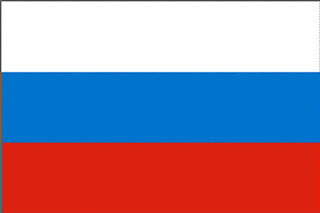Middle Eastern states took measures this week to weather the impact of a looming US-led war on Iraq on their economies
Published:
15 March 2003 y., Saturday
In Amman, Minister of Commerce and Industry Salah Bashir said Thursday Jordan was counting on increasing its exports to the United States to make up for lost revenue from a halt in sales to Iraq in the event of war.
Jordan is expected to suffer the most in the region for the duration of a war, as Iraq is its biggest export market, and Baghdad has been supplying it with crude oil at a highly preferential rates for Jordanian industry. Bashir also said Jordan was planning to continue using Israel’s port of Haifa to ship its exports to the United States, mostly goods produced in duty free zones that are exempted from US duties in line with a 1996 agreement.
In Egypt, interest rates on treasury bonds were hiked for the second week in a row, reaching more than 10 percent, and state imports were frozen for three months, in order to relieve pressure exerted on the local pound by the looming war. The Egyptian pound has lost more than 20 percent to the dollar since it was free-floated on Jan. 29. Analysts said dollar-holders are generally unwilling to sell over concern that a war on Iraq might tighten hard currency supply further by causing a slump in tourism and exports.
Egypt’s flag carrier EgyptAir said Sunday flights to some destinations will be re-routed to avoid dangerous skies, and some flights will be regrouped in order to cut costs, should a war break out. The company expects serious hardship due to its dependency on tourist traffic.
In Lebanon, the central bank’s foreign currency reserves have been boosted to about $10 billion following the disbursement of funds promised last November by international donors, its governor Riad Salameh said. Lebanon has already received $2.2 billion of the $4.4 billion in loans promised by the donors’ conference held in Paris.
Šaltinis:
arabnews.com
Copying, publishing, announcing any information from the News.lt portal without written permission of News.lt editorial office is prohibited.
The most popular articles
 How will economic policies adapt in 2020 when a quarter of the EU population is over 65? Can economics better predict how banks will react to credit crunches in the future, and what their impact will be on the wider economy?
more »
How will economic policies adapt in 2020 when a quarter of the EU population is over 65? Can economics better predict how banks will react to credit crunches in the future, and what their impact will be on the wider economy?
more »
 The EBRD is supporting the development of one of the first modern food retail chains in Turkmenistan with a $1.9 million equity investment in Ak Enar.
more »
The EBRD is supporting the development of one of the first modern food retail chains in Turkmenistan with a $1.9 million equity investment in Ak Enar.
more »
 While on a working visit to Ukraine, President of the Republic of Lithuania Dalia Grybauskaitė has underlined that Ukraine might become a very important energy partner for Lithuania and for the whole European Union but only transparent and open relations will lead to success in this area.
more »
While on a working visit to Ukraine, President of the Republic of Lithuania Dalia Grybauskaitė has underlined that Ukraine might become a very important energy partner for Lithuania and for the whole European Union but only transparent and open relations will lead to success in this area.
more »
 On 25 November in Vilnius, Lithuania’s Vice-Minister of Foreign Affairs and President of the Nordic Investment Bank discussed the issues of the Northern Dimension Partnership on Transport and Logistics (the secretariat of which is being established at the Bank), issues of the NIB cooperation with Lithuania and perspectives of the NIB’s activities in the country.
more »
On 25 November in Vilnius, Lithuania’s Vice-Minister of Foreign Affairs and President of the Nordic Investment Bank discussed the issues of the Northern Dimension Partnership on Transport and Logistics (the secretariat of which is being established at the Bank), issues of the NIB cooperation with Lithuania and perspectives of the NIB’s activities in the country.
more »
 The European Bank for Reconstruction and Development has adopted a new strategy for the Russian Federation.
more »
The European Bank for Reconstruction and Development has adopted a new strategy for the Russian Federation.
more »
 Consumer protection requires transparent and consistent trade rules, believe MEPs.
more »
Consumer protection requires transparent and consistent trade rules, believe MEPs.
more »
 The European Investment Bank (EIB) is lending CZK 2 billion (approx. EUR 76 million) to the South Moravia Region for co-financing the Region’s priority infrastructure projects supported by the EU Structural and Cohesion Funds over the period 2007 – 2013.
more »
The European Investment Bank (EIB) is lending CZK 2 billion (approx. EUR 76 million) to the South Moravia Region for co-financing the Region’s priority infrastructure projects supported by the EU Structural and Cohesion Funds over the period 2007 – 2013.
more »
 Seeking to strengthen business partnership between Israel and Lithuania the Israel and Lithuania Chamber of Commerce has been recently established in Lithuania.
more »
Seeking to strengthen business partnership between Israel and Lithuania the Israel and Lithuania Chamber of Commerce has been recently established in Lithuania.
more »
 AB DnB NORD Bankas, notifies that on 24 November 2009, the member of the Management Board and Executive Vice-president of AB DnB NORD Bankas dr. Jekaterina Titarenko has been appointed as Chief Financial Officer of Bank DnB NORD Group.
more »
AB DnB NORD Bankas, notifies that on 24 November 2009, the member of the Management Board and Executive Vice-president of AB DnB NORD Bankas dr. Jekaterina Titarenko has been appointed as Chief Financial Officer of Bank DnB NORD Group.
more »
 Parliament gave its backing on Tuesday for €400 million-plus in budget aid to Serbia, Bosnia and Herzegovina, Armenia and Georgia.
more »
Parliament gave its backing on Tuesday for €400 million-plus in budget aid to Serbia, Bosnia and Herzegovina, Armenia and Georgia.
more »